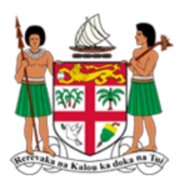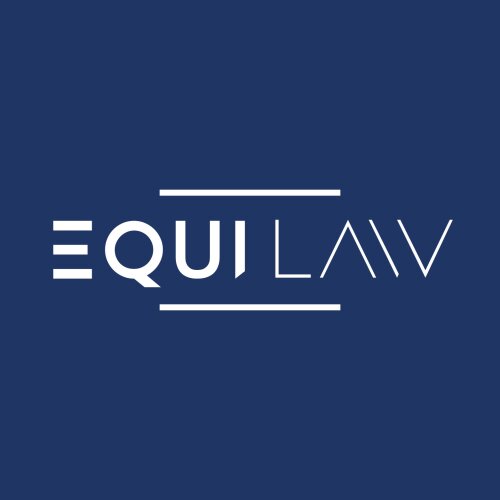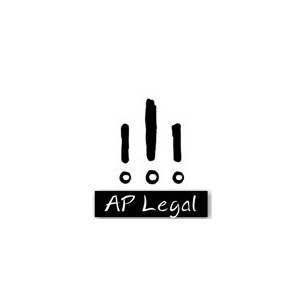Best Public-Private Partnerships (PPP) Lawyers in Fiji
Share your needs with us, get contacted by law firms.
Free. Takes 2 min.
Or refine your search by selecting a city:
List of the best lawyers in Fiji
About Public-Private Partnerships (PPP) Law in Fiji
Public-Private Partnerships, known as PPP, are long-term collaborations between government entities and private sector partners to finance, build, and operate projects that serve a public purpose. In Fiji, PPPs are increasingly used to develop essential infrastructure such as roads, schools, hospitals, utilities, and transportation networks. The aim is to combine the public sector’s responsibility to provide services with the private sector’s innovation, expertise, and efficiency. The Fijian government supports PPP as a strategy to bridge the infrastructure gap, improve service delivery, and foster sustainable economic growth.
Why You May Need a Lawyer
PPPs often involve complex contractual agreements, significant investments, and a mix of public and private interests. Legal guidance is critical to protect your interests, ensure compliance with all applicable laws, and facilitate a smooth partnership process. You may need a lawyer if you are:
- An investor or company considering taking part in a Fijian PPP project
- A government official or agency developing or managing a PPP agreement
- A consultant or subcontractor interested in PPP opportunities
- Dealing with disputes, renegotiations, or enforcement of PPP contracts
- Seeking advice on risk, liability, land use, or regulatory approvals under a PPP framework
Without appropriate legal support, parties can face financial losses, regulatory penalties, or prolonged project delays.
Local Laws Overview
PPP activities in Fiji are influenced by several key legal and regulatory frameworks. The Fijian government has put policies and guidelines in place to promote transparent and accountable partnerships. Relevant legal considerations include:
- The Fiji National PPP Policy, which outlines the government’s approach, objectives, and principles for PPP projects
- Public Procurement Act and Regulations, governing bidding, selection, and procurement processes
- Land laws, such as the Land Use Act and the State Lands Act, which impact site acquisition and land tenure
- Environmental management laws, requiring compliance with environmental standards and approvals
- Sector-specific regulations, such as those relating to utilities, transportation, or health services
- Taxation laws that may affect project structuring and financial viability
- Dispute resolution procedures, often involving negotiation, mediation, or arbitration clauses in PPP contracts
Since each PPP project is unique, understanding relevant legislation and regulatory processes is essential before entering into agreements.
Frequently Asked Questions
What is a Public-Private Partnership (PPP) in Fiji?
A PPP in Fiji is a formal arrangement where a government agency partners with a private company to deliver a public service or infrastructure, sharing risks, responsibilities, and rewards over an agreed period.
What sectors commonly use PPP in Fiji?
PPP models in Fiji are often used in infrastructure such as roads, water supply and sanitation, energy, health services, education facilities, and transport projects.
Who regulates PPP projects in Fiji?
The Fijian Ministry of Economy is the principal agency overseeing PPP initiatives, supported by the Public Private Partnership Unit and guided by government policies.
What are the steps in developing a PPP project?
PPP projects usually follow these steps: project identification, feasibility study, tendering and procurement, negotiation and contract signing, project implementation, and contract management.
How are risks shared between partners in a PPP?
Risks are allocated based on which partner is better able to manage them, typically described in detail in the PPP contract. Common risks include construction, operational, financial, demand, and legal risks.
What legal documents are required for a PPP?
Essential documents include the PPP contract, concession agreements, financial agreements, land leases, permits, and compliance certificates, often customized for each project.
How does the government select private partners?
Private partners are usually selected through competitive bidding or request-for-proposal processes to ensure transparency, fairness, and value for money.
What is the typical duration of a PPP contract in Fiji?
PPP contracts can span from 10 to 30 years or longer, depending on the nature of the project and agreed terms.
What dispute resolution methods are used in PPP contracts?
Common methods include negotiation, mediation, arbitration, and in some cases, court proceedings, as stipulated in the contract.
Can foreign companies participate in PPP projects in Fiji?
Yes, foreign companies may participate, subject to meeting relevant legal, financial, and regulatory requirements as outlined by Fijian authorities.
Additional Resources
If you need further information or support regarding PPP in Fiji, these organizations and resources may be helpful:
- Ministry of Economy, Fiji - primary governmental body for PPP policy and projects
- Fiji Public Private Partnership Unit - specialized division offering guidance and oversight of PPPs
- Fiji Procurement Office - information on procurement process and regulations
- Investment Fiji - support and information for potential investors
- Fiji Law Society - directory of qualified legal practitioners in PPP and commercial law
- Asian Development Bank and World Bank - technical support and guidance on best practices for PPPs
Next Steps
If you are considering involvement in a PPP project in Fiji, take the following steps:
- Identify the scope and goals of your PPP interest or project.
- Consult with a qualified lawyer experienced in Fijian PPP law and contracts.
- Gather and review all relevant documents, such as feasibility studies, potential contracts, and regulatory requirements.
- Engage with government agencies or PPP units to understand the approval process and necessary compliance.
- Conduct a risk assessment and ensure you understand both your rights and obligations under Fijian law.
- If disputes or uncertainties arise, seek prompt legal advice to resolve issues efficiently.
Professional legal assistance ensures your PPP project complies with Fijian laws, maximizes potential benefits, and successfully delivers public value.
Lawzana helps you find the best lawyers and law firms in Fiji through a curated and pre-screened list of qualified legal professionals. Our platform offers rankings and detailed profiles of attorneys and law firms, allowing you to compare based on practice areas, including Public-Private Partnerships (PPP), experience, and client feedback.
Each profile includes a description of the firm's areas of practice, client reviews, team members and partners, year of establishment, spoken languages, office locations, contact information, social media presence, and any published articles or resources. Most firms on our platform speak English and are experienced in both local and international legal matters.
Get a quote from top-rated law firms in Fiji — quickly, securely, and without unnecessary hassle.
Disclaimer:
The information provided on this page is for general informational purposes only and does not constitute legal advice. While we strive to ensure the accuracy and relevance of the content, legal information may change over time, and interpretations of the law can vary. You should always consult with a qualified legal professional for advice specific to your situation.
We disclaim all liability for actions taken or not taken based on the content of this page. If you believe any information is incorrect or outdated, please contact us, and we will review and update it where appropriate.
Browse public-private partnerships (ppp) law firms by city in Fiji
Refine your search by selecting a city.

















